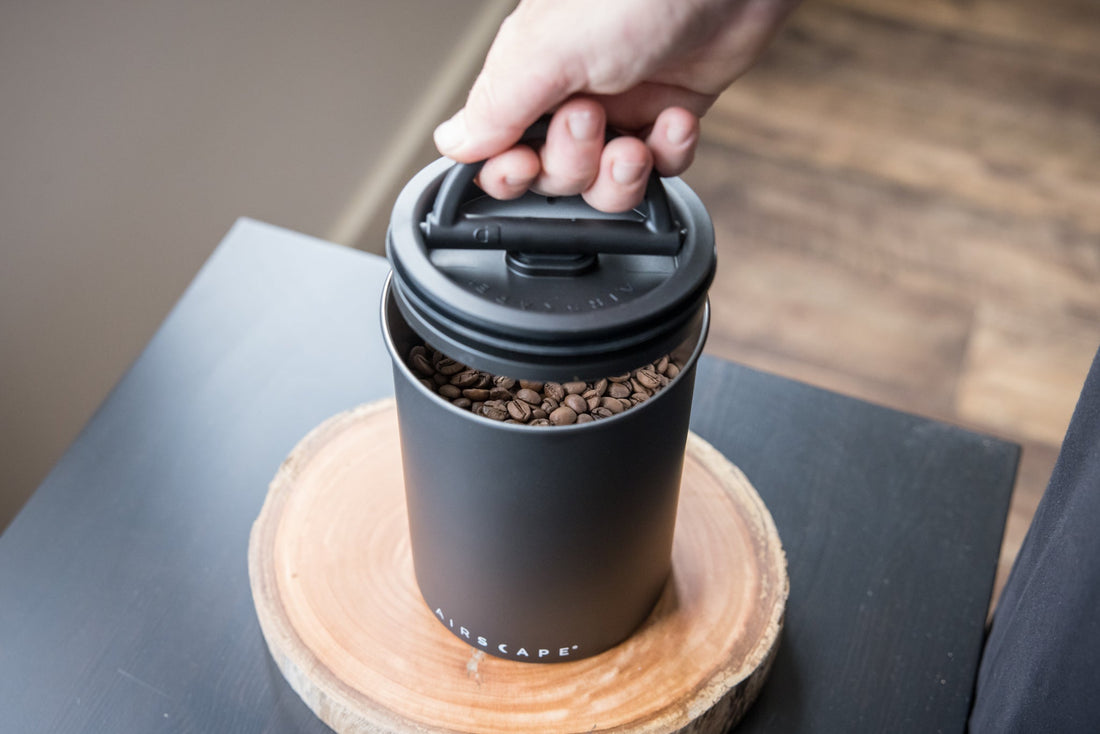Does Freshness Matter? A closer look at coffee roasting and ageing

Share
Fresh is best, right? When it comes to coffee, the answer isn’t as simple as you might think. While there’s a lot of emphasis on drinking coffee as fresh as possible, the reality is that coffee, like good wine or cheese, needs time to develop its best flavours. So, let’s break down the myth of coffee freshness and find out when your beans are actually at their peak.
What Happens Right After Roasting?
When coffee beans are roasted, they go through a dramatic transformation. The heat triggers complex chemical reactions, developing the flavours and aromas we love. But at the same time, freshly roasted coffee is full of carbon dioxide (CO2), which continues to release from the beans in a process called degassing.
If you grind and brew coffee too soon after roasting, this excess CO2 can interfere with extraction, leading to uneven flavours and a less balanced cup. This is why most specialty coffee roasters recommend letting beans rest before brewing.
How Long Should You Wait?
The ideal resting period varies depending on the roast level and brewing method:
- Espresso: Waiting at least 7–14 days after roasting allows for better flavour development. Freshly roasted beans can produce excessive crema and an unstable shot if used too soon.
- Filter Coffee (Pour-over, French Press, AeroPress, etc.): Typically best at 4–7 days post-roast. This allows the flavours to fully develop while still retaining freshness.
- Dark Roasts: These can be brewed sooner, often within 3–5 days, as they degas more rapidly than lighter roasts.
Of course, these are just guidelines—flavour preference plays a big role. Some people enjoy the bright, punchy notes of ultra-fresh coffee, while others prefer a more balanced and mellow profile.
Does Coffee Ever Go Stale?
Yes, but not overnight. Coffee doesn’t have a strict expiration date, but over time, it gradually loses its volatile aromatics and becomes flat or dull. Generally:
- Whole beans stay fresh for 4–6 weeks if stored properly.
- Pre-ground coffee loses its freshness much faster—within days to a week.
- Vacuum-sealed or nitrogen-flushed coffee (like many supermarket bags) lasts longer but still fades after opening.
How to Keep Coffee Fresher for Longer
If you want to extend the life of your coffee, here’s what helps:
- Store it in an airtight container away from light, heat, and moisture.
- Buy whole beans and grind just before brewing for maximum freshness.
- Freeze beans in small batches if you won’t use them within a few weeks (but avoid frequent temperature changes).
The Takeaway
So, does freshness matter? Absolutely—but it’s about balance. Drinking coffee too soon after roasting can mute its flavours, while waiting too long can lead to a dull cup. The sweet spot varies based on roast style, brew method, and personal preference.
Next time you pick up a bag of fresh beans, don’t rush—give them a few days to rest and see how the flavours evolve. Your patience will be rewarded with a smoother, more nuanced brew.